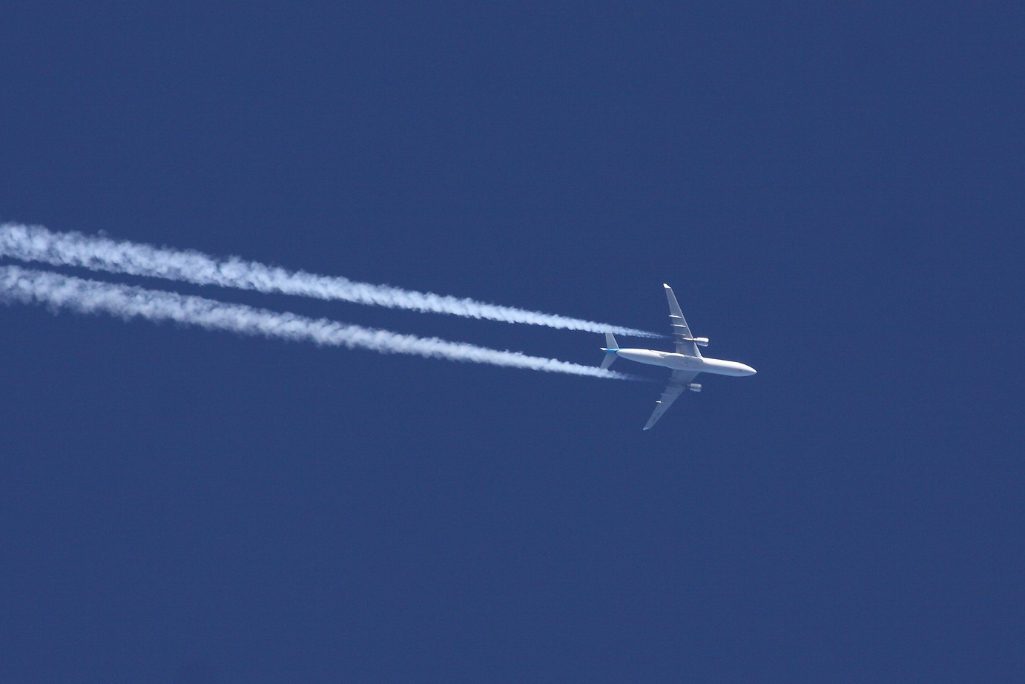Skift Take
Informed consumer choice could help defuse the carbon bomb. But it'll take many actions to respond to the climate emergency.
Carbon emissions on the same flight routes can vary, and Google on Wednesday added emission estimates to its flight search worldwide to inform travelers.
For years, Google Flights, Kayak, and Skyscanner have let consumers filter their flight search results to find ones that may have lower than average emissions, given plane type and other factors.
What’s new is that Google is displaying specific carbon emissions and that the data is for “nearly every” itinerary.
Where possible, Google will also show seat-specific carbon emissions. Seats in premium economy and first-class seats generally emit more emissions because they take up more space on a plane.
Carbon estimates for flights are otherwise hard to find. KLM is one of the rare airlines to have shown carbon estimates to customers since 2008.
Google’s move came after the search titan announced at Skift Global Forum last month that it would start highlighting green hotels. It has begun signposting if third-party organizations such as GreenKey and EarthCheck believe a hotel has positive environmental practices. For some properties, Google Travel is adding details about what a hotel’s sustainability practices are, though hotel participation is optional.
Airlines Can Hone the Displayed Emissions Estimates
Some airlines, such as American Airlines and Lufthansa, said they were working with Google to help “hone” the carbon emission estimates.
“With shared goals of informing customer choice and supporting transparency, we are working with the team at Google to hone the information about carbon emissions that customers will see as they search for flights,” said Jill Blickstein, managing director of environmental, social, and governance for American Airlines.
Google invites airlines to help confirm the estimates, which it generates partly by analyzing data from 2019 from sources such as the European Environmental Agency.
“It’s a technical challenge to keep coverage accurate for the wide variety of planes, routes, and edge cases that are part of air travel,” said James Byers, a senior product manager at Google. “Airlines are helping us validate that our model is correct and helping us compare what we show to actual fuel burn data.”
The carbon estimates are inexact because most airlines don’t complete audits to ensure the accuracy of emissions estimates. Governments don’t currently mandate that airlines disclose emissions by flight.
It’s possible that consumer choice could encourage airlines to speed up efforts to clean up their carbon footprints. Researchers at the International Council on Clean Transportation looked at the carbon emissions for flights on the 20 most popular U.S. domestic routes in the pre-pandemic year of 2019. They found that the least-emitting itinerary on a route could spew out 22 percent less than the route average.
But skeptics wonder if consumers will weigh any given flight’s carbon impact equally with price and schedule. The emissions calculations are reminiscent of the move in the U.S. and several other countries to post calorie counts for meals at fast-food restaurants and on pre-packaged grocery items. The verdict is still out on how consumers have used this information for their dietary health on average.
Environmental impacts have gotten renewed attention from executives in the travel sector. For example, Marriott said at Skift Global Forum it pledged to have net-zero emissions by 2050.
Google is hoping airlines and other partners display the estimates in their interfaces. The search giant said it wanted to help create a transparent model for calculating carbon emissions from air travel. In late September, it joined Travalyst, a sustainable travel coalition whose members include Booking.com, Skyscanner, Trip.com Group, Tripadvisor, and Visa. Google said it’s exploring providing the data through Travalyst to third parties.
“We see this as being bigger than Google,” Byers said. “We’re hoping to see as broad adoption as possible on other airline websites, online travel agencies, and other metasearch brands.”
The Daily Newsletter
Our daily coverage of the global travel industry. Written by editors and analysts from across Skift’s brands.
Have a confidential tip for Skift? Get in touch
Tags: airlines, carbon emissions, climate change, emissions, environment, fuel, google, metasearch, sustainability
Photo credit: Google will begin including carbon emissions information in Google Flights search. Dean Morley / Flickr
